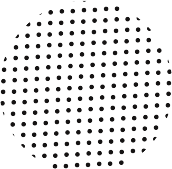
Diversity, Equity, Inclusion and Accessibility (DEIA)
SunPlus vision and strategy are to provide a qualified Diversity, Equity, Inclusion and Accessibility (DEIA) Strategist for achieving “The DEIA Transformation Journey”.
- Helping managers and staff understand root causes of equity and climate issues,
- Developing a framework for improving issues in the areas of operations and organizational culture.
This series provides a step-by-step guide for the personal and emotional journey leaders must undertake to create an inclusive workplace where everyone can thrive. When everyone feels like they belong their human potential is unleashed. That’s why inclusive workplaces experience higher engagement, performance, and profits. Unfortunately, many employees still feel unable to bring their true selves to work. In a world where the workforce is becoming increasingly diverse, it’s more important than ever to truly understand how to support inclusion. This series consists of four sessions.
Session 1: DEI Beyond Compliance (Unaware)
In this stage, participants begin to understand the reality of racial inequalities in the workplace, and the role every inclusive leader should play in making a difference.
Session 2: Understanding the Roots of Privilege and Oppression (Aware)
This stage is for deep self-reflection and internal dialogue about how one’s perceived experiences do not align with others’ world reality. This stage addresses the inner discomforts and the experiences that led participants to experience them. Through this process, participants may realize that they have been making work decisions based solely on their own experiences without considering other perspectives. Participants may come to understand their colleagues’ advantages and disadvantages, and what has made their lives and career progressions relatively easier or harder. This stage awakens leaders to their own limitations and advantages in order to make changes for themselves and their workplace. These insights will give leaders clues for action.
Session 3: Putting DEI Into Action (Active)
Knowledge is of no benefit if it is not applied. The choice to become active is the essential moment for anyone aspiring to be an inclusive leader. This is the phase where leaders step up to do more. In this phase inclusive leaders allow themselves to be put in places of discomfort and assume new responsibility as a friend, colleague, and especially as a leader. In this stage, the inclusive leader begins to shed unproductive behaviors, mindsets, and resistance points that have prevented them from taking action in the past, or that continue to distract and slow them down. Leaders also learn how to prepare for others that might not like their new actions and how they are communicating their values. Humility and resilience are key traits needed in the Active phase.
Session 4: DEI Allyship
In this stage, inclusive leaders not only focus on who needs support but also on how systems need to evolve to interrupt harmful practices that perpetuate an unequal playing field. In other words, the inclusive leader is committed in word and deed to making the workplace truly inclusive. In this stage, inclusive leaders may find themselves more public with their efforts to be bolder, more challenging, and questioning systems that so many people have taken for granted. This inclusive stance becomes the new normal. Finally, in this stage, the inclusive leader knows the language of inclusion, is comfortable in knowing that they will make mistakes, and others begin to follow along and gain inspiration form the inclusive leader.
Session 1: Bridges to Understanding
Participants will explore real-life situations, and build and refine the skills necessary to understand, appreciate and communicate respect for others. They will also leave with a sense of responsibility for speaking up when inappropriate or discriminatory remarks are made, and how to become part of a solanum. The result is an enhanced workplace, where diversity becomes a strength instead of a weakness, a workplace likely to have fewer instances of bias and discrimination, and where everyone can function in an inclusive atmosphere.Session 2: Implicit Racial Bias
Participants in this session will learn about the unconscious stereotypes and assumptions that often are contrary to espoused beliefs about racial equity and justice that people express. You will also learn to consider the ways to mitigate the negative impact and address Implicit Racial Bias both personally and professionally.Session 3: Racial Microaggressions in the Workplace
Participants will learn how different types of racial discrimination, specifically those enacted through microaggressions, impact the lives of BIPOC employees and provide hands-on knowledge and strategies to approach, address, and intervene when such acts are present. We’ll also give recommendations on how to reduce the prevalence and influence of microaggressions on recipients.Session 4: Say This, Not That: Improving DEI Communication
This session is designed to improve communication in a diverse workplace. We will address common comments that are well-intended but have harmful effects. Although well intended, these kinds of statements can be offensive, racist, and hurtful. We will examine harmful statements and create a new language that is inclusive and respectful. Employees won’t get it right every time but this training will definitely assist in reducing the probability of repeating these gaffes.- Why Racial Affinity Groups
- Community Agreements
- Emotional Safety
- Constructivist Listening
- Circles of Identity
- Why Race
- Oppression Definitions
- Coaching in the Skin You’re In
- Defining Equity
- Understanding Systemic Oppression
- White Dominant Culture
- Detours
- Microaggressions
- Being and Equity Minded Leader
- Anti-Racism Roles
- D1 and D2 Conversations






